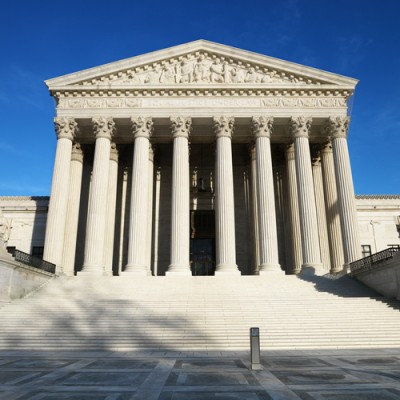Supreme Court rules schools must provide special ed students a chance to make 'meaningful progress'

The Individuals with Disabilities in Education Act requires schools to offer education plans “reasonably calculated to enable a child to make progress appropriate in light of the child’s circumstances,” the U.S. Supreme Court ruled (PDF) Wednesday.
As NPR reported, the unanimous ruling was a win for Endrew F., a Colorado boy with autism. His parents removed him from public school in the fifth grade after the school offered them an individualized education plan, or IEP, that they believed would not help Endrew make substantial progress. They then sued the school district under the IDEA for reimbursement of the tuition costs at the private school where he had been enrolled.
The family’s claim was denied, and that decision was affirmed by the Denver-based 10th U.S. Circuit Court of Appeals. Under a prior Supreme Court case on IDEA, Hendrick Hudson Central School District v. Rowley, the law’s requirement for a “free, appropriate public education” is satisfied by an IEP “reasonably calculated to enable the child to received educational benefits.” The 10th Circuit decided that this means an IEP is sufficient if it creates “an educational benefit [that is]… more than de minimis.”
The Supreme Court disagreed 8-0. It said every child should have a chance to be challenged.
“This standard is markedly more demanding than the ‘merely more than de minimis’ test applied by the 10th Circuit,” the court held in an opinion written by Chief Justice John Roberts. “It cannot be the case that the act typically aims for grade-level advancement for children with disabilities who can be educated in the regular classroom, but is satisfied with barely more than de minimis progress for those who cannot..”
However, the high court went on, it disagreed with Endrew’s parents’ assertion that the IDEA requires opportunities for disabled students that are “substantially equal to the opportunities afforded to children without disabilities.” It rejected that argument in Rowley, it said, and nothing has changed.
The court went on to say that there’s no bright-line rule in Rowley because every child’s circumstances are different. However, it said, that’s not an invitation for courts to substitute their own judgment on educational policy for the judgment of school authorities.
“A reviewing court may fairly expect those authorities to be able to offer a cogent and responsive explanation for their decisions that shows the IEP is reasonably calculated to enable the child to make progress appropriate in light of his circumstances,” the court wrote.
The ruling was brought up during confirmation hearings for 10th Circuit judge and Supreme Court nominee Neil Gorsuch this morning. Sen. Dick Durbin, D-Ill., noted that Gorsuch had found against students in eight of 10 cases involving the IDEA. Gorsuch was not on the 10th Circuit panel that heard Endrew’s case (PDF). NPR notes that Gorsuch wrote in one case, Thompson R2 School District v. Luke P. (PDF) that the IDEA’s free, appropriate public education standard “is not an onerous one.”
“I was wrong, Senator, because I was bound by circuit precedent, and I’m sorry,” Gorsuch responded.
Prior coverage:
ABAJournal.com: “SCOTUS accepts case of autistic child to rule on education benefits for kids with disabilities”



